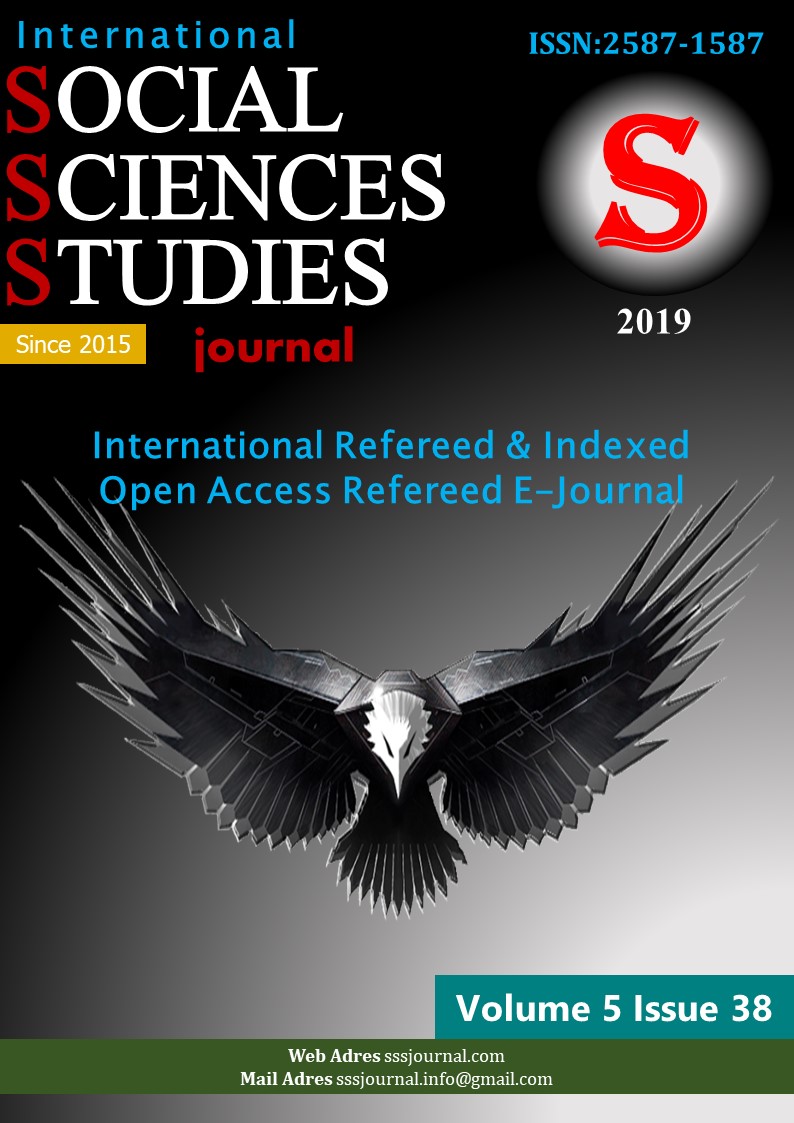Author :
Abstract
Bu çalışmada finansal tabloların denetiminde denetçinin dikkate alması gereken kriterler ele alınmıştır. Finansal tablolar, işletmenin finansal durumunun ve finansal performansının biçimlendirilmiş sunumudur. Bu tablolar, tabloların hazırlandığı dönem itibariyle işletmede gerçekleştirilen olay veya işlemlerin özetini sunarlar. Finansal tablolar aracılığıyla şirketin finansal durumu hakkında bilgilendirme yapılmaktadır. Bu bilgilere güvenilirlik, denetim aracılığıyla sağlanacaktır. Denetçinin denetleyeceği finansal tablolar finansal durum tablosu, döneme ait kar veya zarar ve diğer kapsamlı gelir tablosu, döneme ait özkaynak değişim tablosu, döneme ait nakit akış tablosu, önemli muhasebe politikalarını ve diğer açıklayıcı bilgileri içeren dipnotlardan oluşur. Finansal tabloların denetimi açısından öncelikle 6102 Sayılı Türk Ticaret Kanunu’nda yer alan düzenlemeler incelenmiştir. Türk Ticaret Kanunu’nda denetimin, uluslararası standartlarla uyumlu Türkiye Denetim Standartlarına göre yapılacağı yer almaktadır. Standartların hazırlanması konusunda, Kamu Gözetimi, Muhasebe ve Denetim Standartları Kurumu’na yetki verilmiştir. Kurum tarafından yayınlanan bağımsız denetim standartlarında yer alan finansal tablo denetleme kriterleri belirlenmeye çalışılmıştır. Bunlar arasında denetime hakim olan ilkenin finansal tabloların gerçeğe uygun sunumu sağlaması olduğu saptanmıştır.
Keywords
Abstract
In this study, the criteria that the auditor should take into consideration in the audit of the financial statements are discussed. Financial statements are a structured representation of the financial position and financial performance of an entity. These tables provide a summary of the events or transactions performed in the entity as of the period in which the tables are prepared. These tables provide information on the financial position of the company. The company’s financial position is informed through the financial statements. Reliability of this information will be ensured through audit. The financial statements to be audited by the auditor include the statement of financial position, the statement of profit or loss and other comprehensive income for the period, the statement of changes in equity for the period, the statement of cash flows for the period, significant accounting policies and other explanatory information. For the purpose of auditing the financial statements, the regulations in the Turkish Commercial Code No. 6102 were examined first. The supervision of the Turkish Commercial Code, is arranged to be made by Turkey Auditing Standards compliant with international standards. Public Oversight, Accounting and Auditing Standards Authority has been authorized for the preparation of standards. The auditing criteria of the financial statements included in the independent auditing standards issued by the Authority have been tried to be determined. Among these, it is found that the principle of audit is to ensure the fair presentation of financial statements.
Keywords
- Acar, D. & Tetik, N. (2016). Genel Muhasebe, Detay Yayıncılık, Ankara.
- Acar, D. & Tetik, N. (2016). Genel Muhasebe, Detay Yayıncılık, Ankara.
- Akıncı, N. & Ünlen, M. (1988). Mali Tablolar Analizi. Barış Yayınları, İzmir.
- Bulmuş, S. (2018). “Bağımsız Denetim Görüş Türlerinin Oluşma Nedenleri Üzerine Bir Araştırma: BİSTİmalat Sektörü Örneği”, Yüksek Lisans Tezi, Kırklareli Üniversitesi Sosyal Bilimler Enstitüsü, Kırklareli. Çabuk, A. & Lazol, İ. (2010). Mali Tablolar Analizi, Ekin Kitabevi, Bursa.
- Gökçen, G. (2015). Genel Muhasebe, Beta Yayıncılık, İstanbul.
- Gökgöz, A. (2015). Genel Muhasebe, Ekin Basım Yayın Dağıtım, Bursa.
- Güredin, E. (2014). Denetim ve Güvence Hizmetleri - SMMM ve YMM'lere Yönelik İlkeler ve Teknikler, Türkmen Kitapevi, İstanbul.
- Karabınar, S. (2015). Genel Muhasebe, Sakarya Yayıncılık, Sakarya.
- Kaval, H. (2011). “TMS Kapsamında Çeşit Esasına Göre Kar Zarar ve Diğer Kapsamlı Gelirler Tablosu”, Yaklaşım Dergisi, (228): 1-28.
- Kocayusufpaşaoğlu, N. (2014). Borçlar Hukuku Genel Bölüm, Filiz Kitabevi, İstanbul. Küçüksavaş, N. (2016). Finansal Muhasebe, Beta Yayıncılık, İstanbul.
- Kürşat, Z. (2003). Borçlar Hukuku Alanında Hile Kavramı, Kazancı Kitap A.Ş., İstanbul. Lazol, İ. (2017). Genel Muhasebe, Ekin Basım Yayın Dağıtım, Bursa.
- Liu, X. & Liu, Y. (2009). “Applying Reporting of Comprehensive Income in China”, International Journal of Marketing Studies, 1(2): 74-77.
- Makoujy, R. J. (2010). How to Read a Balance Sheet, McGraw-Hill Companies, United States.Moroğlu, E. (2015). Anonim Ortaklıkta Sermaye Artırımı, On İki Levha Yayıncılık, İstanbul.
- Poroy, R., Tekinalp, Ü. & Çamoğlu, E. (2014). Ortaklıklar Hukuku I. Yeniden Yazılmış 13. Bası, Vedat Kitapçılık, İstanbul.
- Sevilengül, O. (2016). Genel Muhasebe, Gazi Kitabevi, Ankara.
- Sürmen, Y. (2017). Muhasebe – 1, Celepler Matbaacılık, Trabzon.
- Tanış, V. N. (2016). Genel Muhasebe İlkeler ve Uygulamalar, Karahan Kitabevi, Adana.
- Tekinalp, Ü. (1979). Anonim Ortaklığın Bilançosu ve Yedek Akçeleri, Fakülteler Matbaası, İstanbul.
- Tekinalp, Ü., Poroy, R. & Çamoğlu, E. (2019). Ortaklıklar Hukuku I. Yeniden Yazılmış 14. Bası, Vedat Kitapçılık, İstanbul.
- Uysal, T. & Şenlik, M. (2016). Genel Muhasebe, Seçkin Yayıncılık, Ankara.
- Üçışık, G. & Çelik, A. (2018). Anonim Ortaklıkta Finansal Tablolar Yedek Akçeler ve Kar Dağıtımı, On İki Levha Yayıncılık, İstanbul.
- Yalçın, E. (2015). Uluslararası Finansal Raporlama, Seçkin Yayıncılık, Ankara.Yalvaç, E. F. (2016). Muhasebenin Temel İlkeleri, Beta Basım Yayın, İstanbul.Zülch, H. & Pronobis, P. (2010). “The Predictive Power of Comprehensive Income and Its IndividualComponents under IFRS”, HHL-Arbeitspapier, (95):https://www.hhl.de/fileadmin/texte/publikationen/arbeitspapiere/hhlap0095.pdf, (erişim tarihi: 27.03.2019). Kısaltmalar
- KÇ : 27 Ekim 2018 Tarihli ve 30578 Sayılı Resmi Gazete’de yayınlanan Kavramsal Çerçeve KGK : Kamu Gözetimi, Muhasebe ve Denetim Standartları Kurumu





